Intermittent fasting is a good way to fight extra pounds and insulin resistance, which can be the cause of excess weight gain. During the fasting period, the body turns on the mode of consumption of the fuel accumulated in the body – fat. There are various plans for intermittent fasting. 10 hours is enough for some people, and someone practices OMAD, refraining from food for 24 hours. During such long breaks, it can be difficult for you to go without food and drink only water. Can you drink tea while fasting?
Yes, you can drink tea while fasting. However, there are several conditions. You should avoid adding milk, cream, syrups, lemon, honey, and even sweeteners. You can choose black, green, or herbal tea and drink it in moderation.
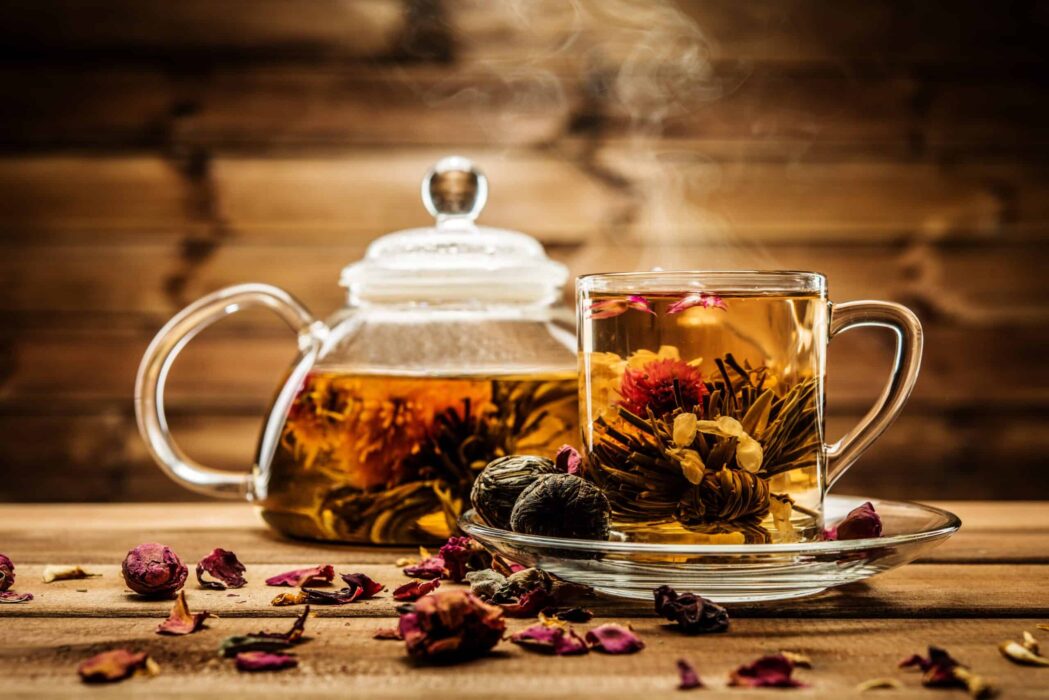
Does Tea Break a Fast?
No, tea does not interrupt fasting because it does not cause insulin changes in your body. Intermittent fasting works by lowering levels of the hormone insulin in the body, which is involved in storing fat. When the body stops receiving energy from food, it turns on the consumption mode of the accumulated fat. Fasting also helps to be more energetic and think clearer, normalize blood glucose and insulin levels, and reduce chronic inflammation.
Alcohol during Intermittent Fasting: Everything You Need to Know
Tea does not contain calories and macronutrients, so it does not cause insulin spikes in your blood. Accordingly, tea does not interrupt fasting and is a safe addition to food-free periods. The main rule is to use natural tea without any additives.
How to Drink Tea during a Fast?
The main rule of intermittent fasting is not to get any calories at all in the intervals between meals. Therefore, you need to exclude all high-calorie drinks such as milk, alcohol, juices, and soda. You can drink black, green, and herbal teas while fasting as they provide minimal impact on metabolism and gut health.
However, intermittent fasting is aimed at altering metabolism. In large doses, drinks such as tea or coffee can affect metabolism and thus the effect of intermittent fasting. Therefore, it is better to limit their consumption to 1-2 cups in 12 hours. Moreover, drinking tea on an empty stomach can cause nausea and bloating and can intensify “hunger cramps,” increasing the stomach’s acidity, which is not the best condition for abstaining from food. If you can’t go without tea, brew it as lightly as possible, use herbal tea, and don’t overdrink it.
The Effect of Tea Caffeine on Fasting
All types of tea, except herbal teas, are made from the leaves of the Chinese camellia bush. The type depends on the oxidation state of the leaves. Green tea does not undergo fermentation (or this process takes no more than two days), and black tea is processed from two weeks to a month. Both types are good for health but contain different amounts of vitamins and minerals and have different medicinal properties.
Since tea makes you feel more active, it’s natural to wonder if it can boost your metabolism while fasting. Unfortunately, excessive caffeine consumption found in black and green teas, especially on an empty stomach, can increase feelings of anxiety, increasing your appetite and cravings for snacks. It is because caffeine raises levels of cortisol, a stress hormone. An increase in cortisol levels, in turn, can trigger a chain of hormonal reactions that ultimately lead to an increase in blood glucose levels. And this is what you are trying to avoid when fasting.
Black or green tea increases metabolic rate slightly and gives your body a slight increase in temperature. The effect lasts about 90 minutes after consumption. It is repeated if you drink the tea at intervals of about two to three hours. Sounds great, but during fasting, your metabolism is reduced because the purpose of fasting is to give your body a chance to rest. So drinking too much tea during intermittent fasting essentially neutralizes the effect of slowing down the metabolism.
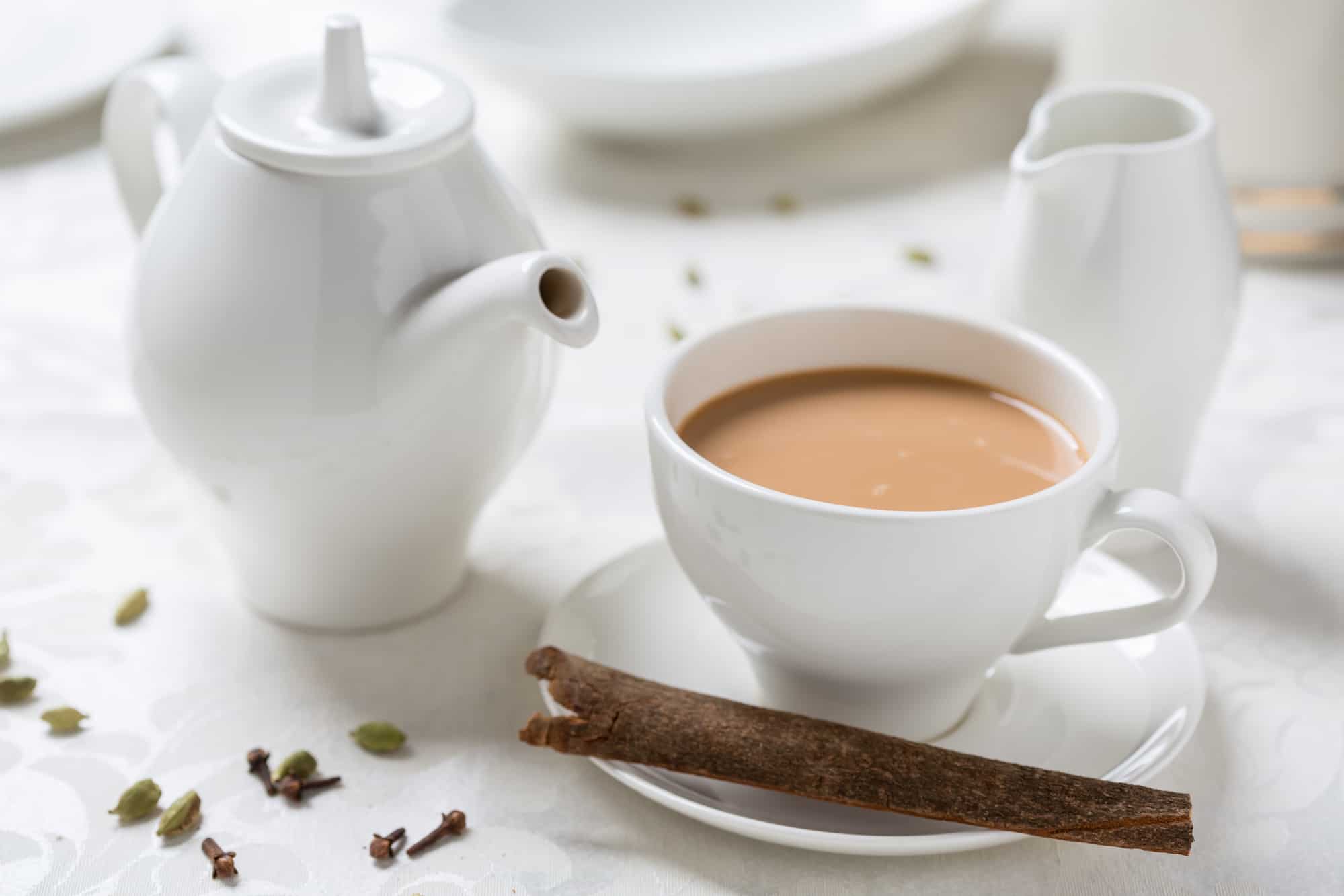
Does Tea with Milk Break a Fast?
Yes, of course, tea with milk interrupts fasting because milk contains calories, consisting of proteins, fats, and carbohydrates. And, while such a drink has all the benefits of tea, milk will end your fasting window.
Is Milk Keto? The Complete Guide to Keto-Friendly Options
Intermittent fasting only works if you are not consuming any calories during the fasting period, so refrain from adding milk. If you practice intermittent fasting while on a keto diet, you can add some coconut oil or MCT oil to your tea.
Is Black Tea Good During Fasting?
Yes, you can drink black tea without sugar or milk while fasting. The infusion of tea leaves is good for the human body. After all, it contains substances such as:
- Improves the condition of the skin and hair.
- It restores blood and also has anti-inflammatory functions.
- Nicotinic and pantothenic acids. The former is involved in maintaining energy balance and the breakdown of fats, while the latter creates healthy cholesterol.
- Provides excellent dental and oral health.
It also contains vitamins:
- C – even though more than half of its volume is destroyed during leaf fermentation and brewing, a lot of it remains in tea leaves;
- B1 – maintains tone and overall health;
- B2 – makes the skin and mucous membranes healthy, and also takes part in the synthesis of hemoglobin;
- P – increases the elasticity of blood vessels and improves blood composition;
- K – normalizes the process of blood clotting and maintains healthy bones.
The beneficial properties of black tea directly depend on its composition. This drink is known for the following effects:
- improves attention and calms the nervous system;
- energizes and tones the body;
- increases mental and physical activity;
- protects against bacteria and microorganisms in the oral cavity;
- eliminates headache and muscle spasms;
- affects the healing of skin and ulcers;
- normalizes the digestive tract;
- stimulates the activity of the kidneys.
It is worth considering that these benefits are achieved through the correct preparation and consumption of the drink. And also, its action passes gradually, so it is not recommended to overuse it. I recommend that you not drink more than 1-2 cups of black tea while fasting. You should also skip black tea if you experience any discomfort or digestive upset after drinking it.
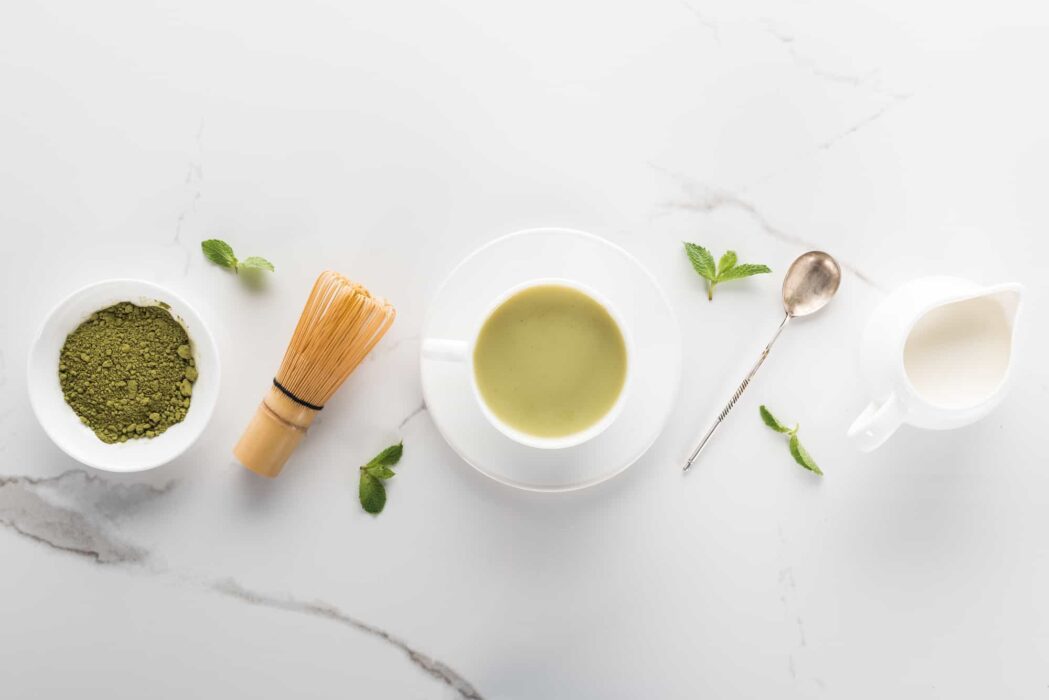
Why Is Green Tea the Most Useful?
Green tea contains less caffeine than black tea or coffee. However, it also activates the brain, and the stimulating effect is softer and lasts longer than after coffee [1].
The reason is green tea’s components, which help maintain health and cope with different diseases. First of all, its leaves are anti-inflammatory. In traditional medicine in China and India, green tea reduces fever, stops bleeding, heals wounds and diseases of the heart and brain.
The beneficial effect of green tea during fasting is due to its high polyphenols content – powerful natural antioxidants. In addition, green tea contains a special type of this substance – catechins. They bind and remove free radicals that damage cells and provoke disease and aging in the body, thereby decreasing inflammation.
Simple Weekly Meal Plan for Intermittent Fasting
In addition to polyphenols, green tea contains:
- vitamins A and C, group B vitamins – support the health of hair, skin, digestive, nervous and circulatory systems, regulate blood sugar levels,
- P – strengthens blood vessels,
- F – supports oral health,
- vitamin K – helps the kidneys and metabolism,
- trace elements: fluoride, calcium (up to 5 mg per 1 g of tea leaves), zinc, potassium (up to 20 mg), copper, iron, magnesium (up to 2 mg),
- 20 types of amino acids, including gamma-aminobutyric acid, which stimulates the brain, and glutamic acid, which is necessary for the restoration of the nervous system,
- alkaloids: caffeine and L-theanine, which retain the tonic effect of caffeine but soften its effect, as well as theobromine, which has a diuretic effect and helps to lose weight.
Caffeine and antioxidants, which green tea contains in large amounts, help the body burn calories. Besides, the metabolism is accelerated, which contributes to weight loss. However, you should also avoid overusing green tea during fasting because of its caffeine content.
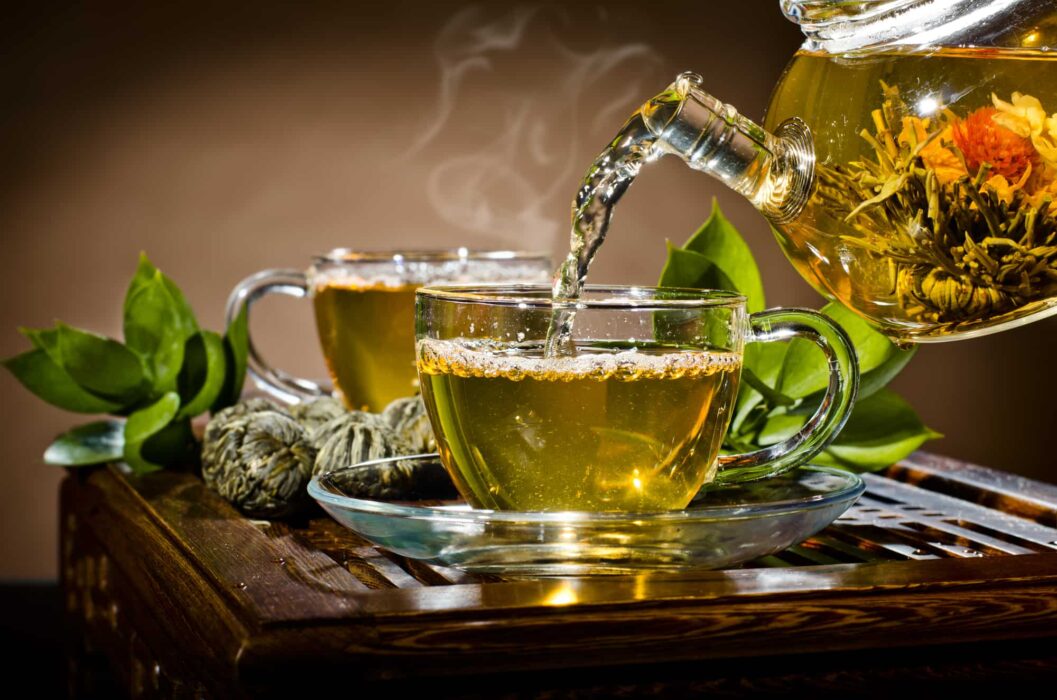
Can Herbal Tea Contribute To Your Health During A Fast?
Unlike black and green tea, herbal teas are made by mixing herbs, spices, fruits, seeds, and roots of various medicinal plants. Therefore, they do not contain caffeine and have healing properties. Some of them are used as skinny tea for weight loss. Due to the lack of caffeine, you can drink herbal teas without restriction while fasting. Let’s look at the main benefits of herbal teas during intermittent fasting.
Improve the Immune System
Herbal teas are rich in anti-aging agents that detoxify, boost immunity, normalize metabolism, and support skin health. As a result, they help fight diseases and infections and reduce the risk of chronic diseases. For example, teas containing turmeric, elderberry, echinacea, and ginger, are known for their immune-enhancing properties.
Reduce Inflammation
Another benefit of herbal teas is their anti-inflammatory properties. Ingredients such as peppermint, ginger, turmeric, and eucalyptus help fight the effects of arthritis, headaches, body aches, and nausea. Peppermint tea is a natural pain reliever for women with menstrual cramps. It is good for children and helps with allergies, colds, itching, and rashes.
Help Fight Insomnia and Relieve Stress
Chamomile is known as a natural remedy for insomnia. In addition, its calming properties help fight depression, which is important in the modern world. Since chamomile tea contains absolutely no caffeine, you can drink it at any time of the day, combining it with mint and linden.
Herbal teas are considered a natural remedy for disorders such as anxiety and stress. For example, lavender, lemon balm, chamomile, and Gotu kola teas are ideal remedies for relieving anxiety.
Intermittent Fasting: Everything You Need to Know to Do it Right
Improve Metabolism and Help Lose Weight
Depending on their ingredients, most herbal teas have detoxifying properties and help the digestive system. They are also the preferred slimming drink to reduce the urge to overeat. In particular, mint, fennel, and lemongrass teas are beneficial for digestion and weight loss.
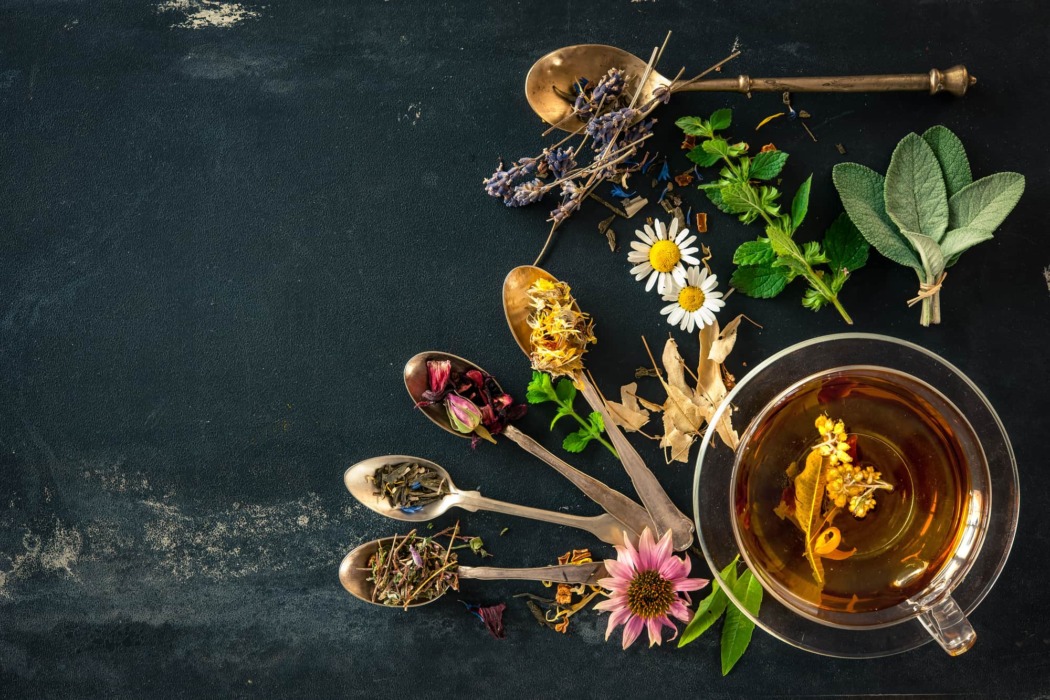
As you can see, different herbal teas have many positive effects on your entire body. Pick some healthy compositions and drink them while fasting. Herbal tea has no metabolic effects and will not affect your intermittent fasting in any way.
Conclusion
Summing up, you can diversify your fasting with natural teas. Whether you choose black, green, or herbal tea, don’t use any additives to avoid interrupting your fasting. Remember, you can only drink caffeine-free herbal teas without restriction. Black and green tea contains a lot of caffeine, which affects your entire body and can worsen fasting results.
Sources:
- Boros K, Jedlinszki N, Csupor D. Theanine and Caffeine Content of Infusions Prepared from Commercial Tea Samples. Pharmacogn Mag. 2016;12(45):75-79. (doi:10.4103/0973-1296.176061)